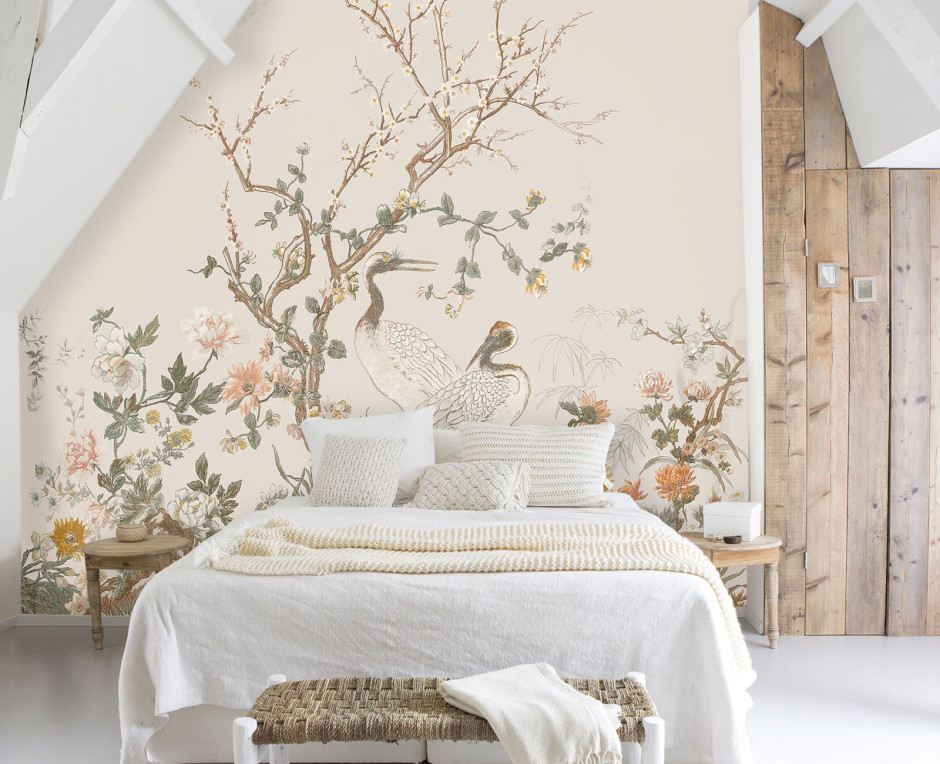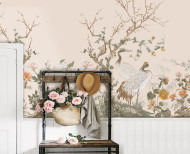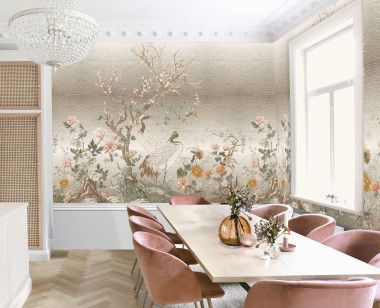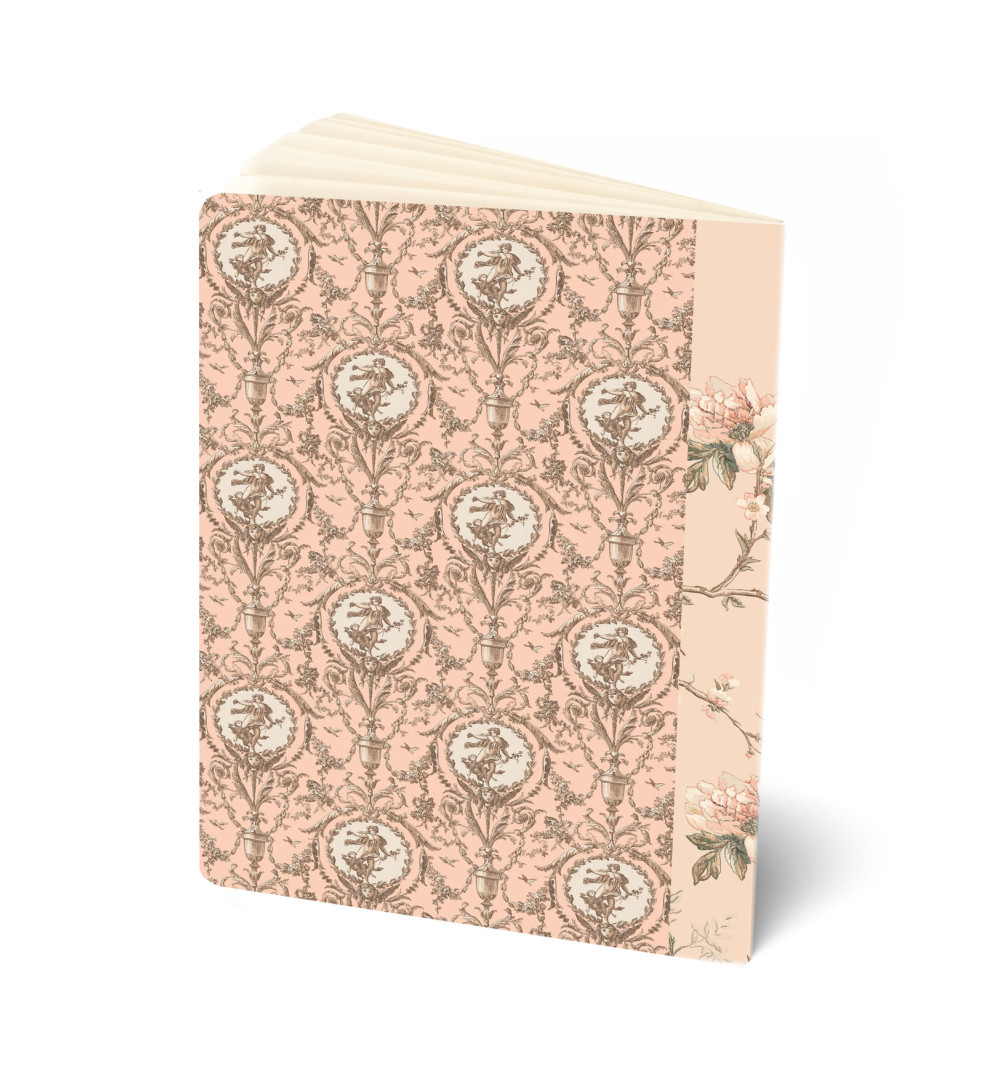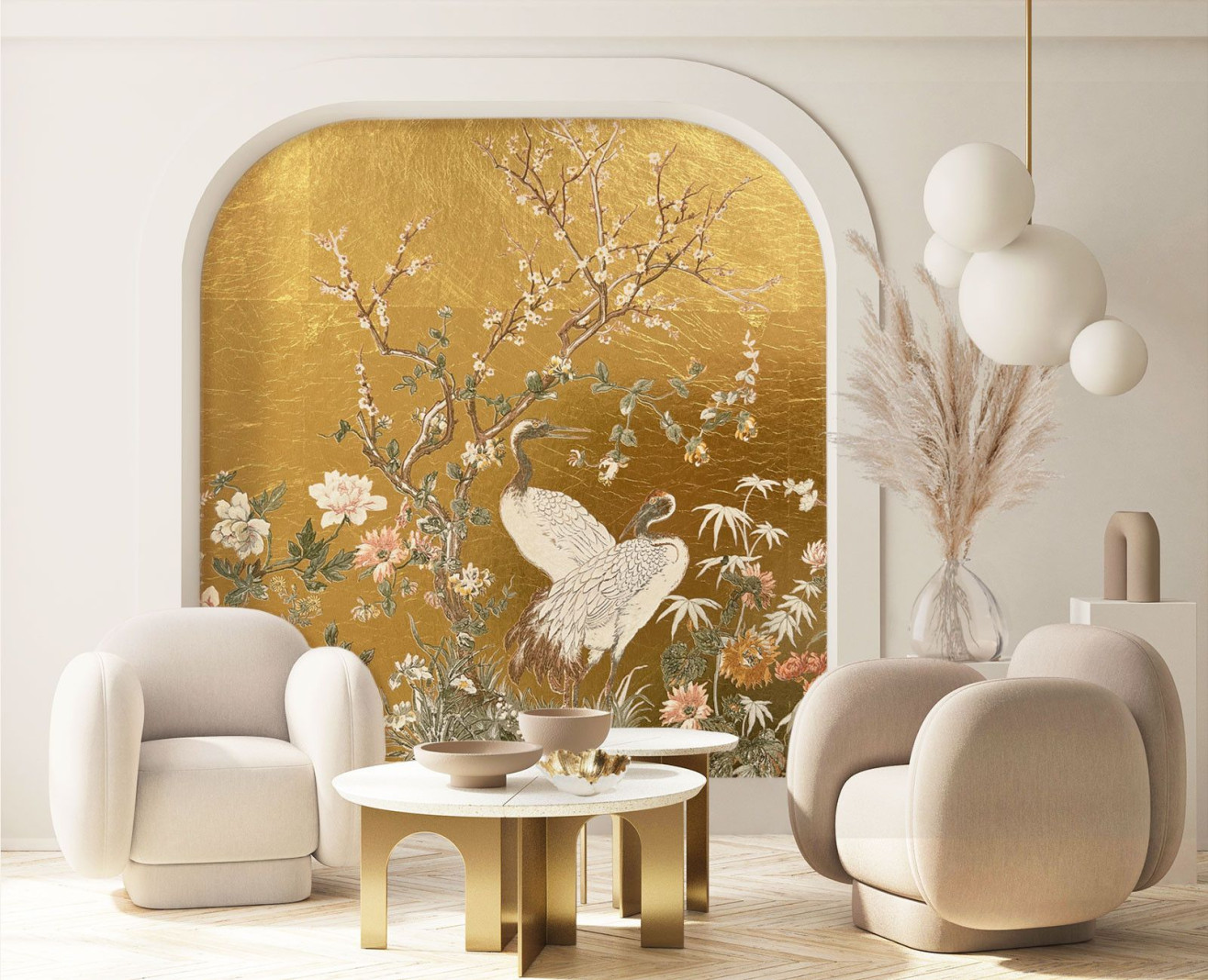No products
- LA PREMIUM finish ideal for walls, kitchen and bathroom
- L’EXTRA finish ideal for woodwork
You still have to place an order for additional boards
(boards are only sold by 3)
Panoramic wallpaper ivory japanese cranes . 1889
Manufacturer Petitjean
115,00 €
This scenic wallpaper comes from the House of George Sand in Nohant (Berry, France). It decorates the "'Aurore room", the writer's granddaughter, located on the 1st floor. It was designed and manufactured by the Parisian workshop Petitjean which presented it at the World Fair of 1889 in Paris and which enabled it to win the silver medal. Driven by the ambient "Japonism", Gabrielle (George Sand's second granddaughter) chose in 1893 this "Japanese decor" for her bedroom. This panorama takes up all the themes of Japanese prints with its cranes, cherry blossoms ("sakura"), plum blossoms ("Ume"), peonies ("Botan"), chrysanthemums ("kiku")...
To bring new life and modernity to this wallpaper, Le Grand Siècle commissioned a photo shoot on the Nohant site. Our workshop then carried out a long and meticulous digital restoration. It chose to keep certain defects, in particular the "bandages" which were applied during the physical restoration of the wallpaper in 1995, in order to preserve the memory of the product (cf picture).
Collection from the George Sand House (Nohant)
Photographic credit : @CMN/ Benjamin Gavaudo
Colors
MORE INFORMATION ABOUT LEAD TIMES, click here
In 1871, Joseph Petitjean took over the Messener wallpaper factory based in Paris (26 rue Saint Bernard). He gradually featured a wide range of technical equipment which enabled him to offer plank manufacturing, the imitation of old embossed leathers from Cordoba and Mechelen, matt and velvety plain backgrounds and metal hangings (of which he is the 'inventor). During the World Fair of 1889 in Paris, he exhibited machine-made wallpaper designs 2M high including the "Japanese Decor" awarded a silver medal. When he died in 1903, his son succeeded him. From takeovers to successive associations, the company was taken over in 1933 by the Fabrique parisienne de papiers peints.
1889
Located on the 1st floor of the Nohant House, the room decorated by this scenic wallpaper was that of George Sand (1837-1867), then that of her granddaughters. One of them, Gabrielle, settled there between 1892 and 1909, after her separation from her husband. Admirer of the Far East and influenced by the Japanese fashion of the time, she decided to decorate it with this panoramic view and bamboo furniture around 1893. Her sister Aurore Lauth-Sand lived there from 1910 until her death in 1961. She had 2 other wallpapers put up in succession. Survey work carried out in the 1990's revealed that there were 8 layers of wallpaper in this bedroom! The restorers then decided to bring back to light this marvelous Japanese panorama, very emblematic of the end of the 19th century.
This scenic wallpaper takes up graphic themes dear to Japanese culture such as cherry and plum blossoms, peonies, chrysanthemums and cranes, symbols of loyalty and longevity. At the end of the 1880s (date of its production), France and most European countries experienced a strong craze for Japan: the smallest bourgeois house then had a ceramic, a parasol, a fan or a fabric of Japanese style. The West were fascinated by the simplicity of these settings and more broadly by this vision of a pure world turned towards nature, far from the triviality of the industrialized West. Japanese prints, in particular those of the artists Hokusai, Hiroshige and Utamaro, became a source of inspiration both for the fine arts and for the decorative arts and the variations of motifs in this style were then endless on ceramics, fabric, furniture, jewelry and accessories. Similarly, the influence is considerable in European painting with Manet, Tissot, Pissaro, Cézanne, Gauguin...
Our wallpapers are hung in 3 stages: the preparation of the wall, its pasting, and the hanging. The strips are hung edge to edge and from left to right in the order indicated on the assembly plan supplied with the rolls. To find out more, consult our Hanging instructions page.
Non-woven wallpaper 147g/ square meter
Matching edge to edge
Manufacturing time: 20 business days
Made in France
Owing to the manufacturing process, there could be small variations in colors from one production batch to the next. If possible, avoid buying different parts of the same design several weeks apart.




